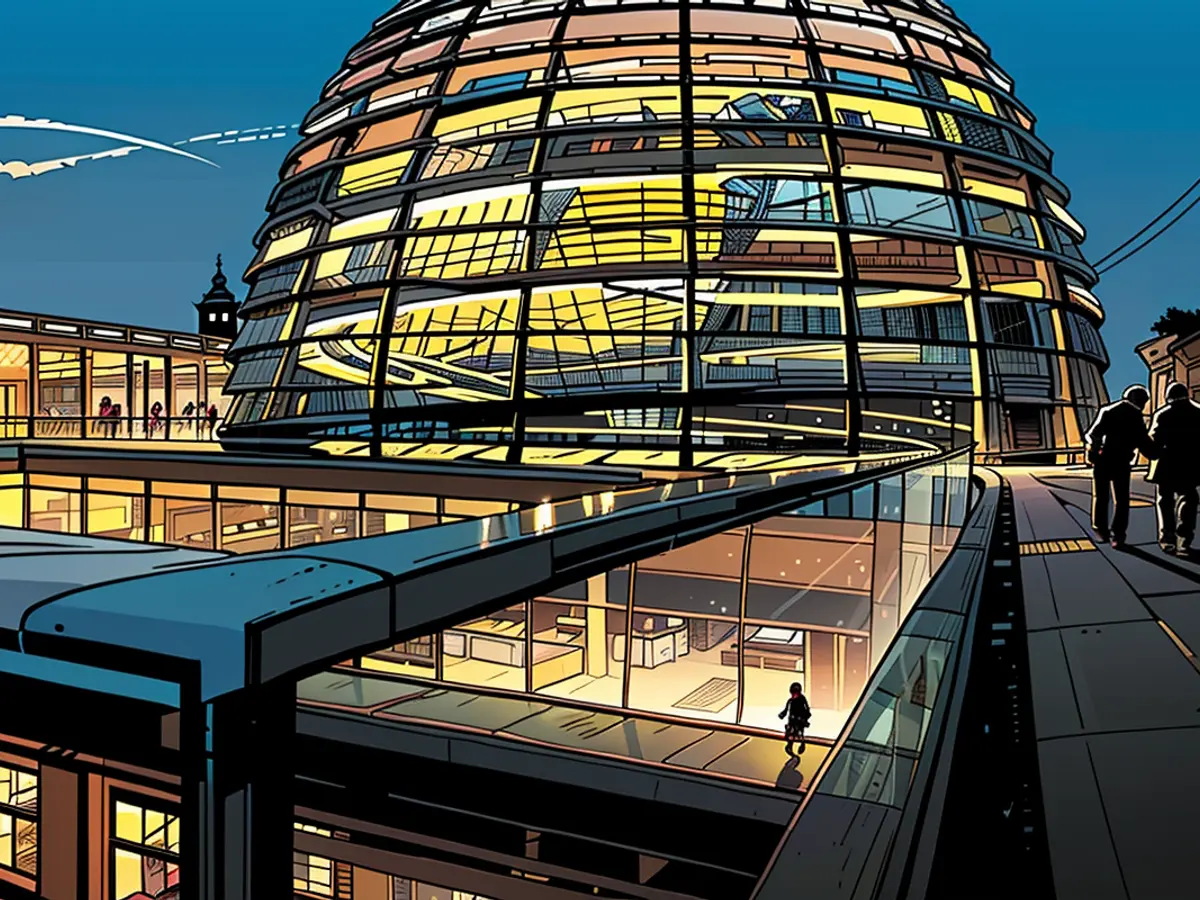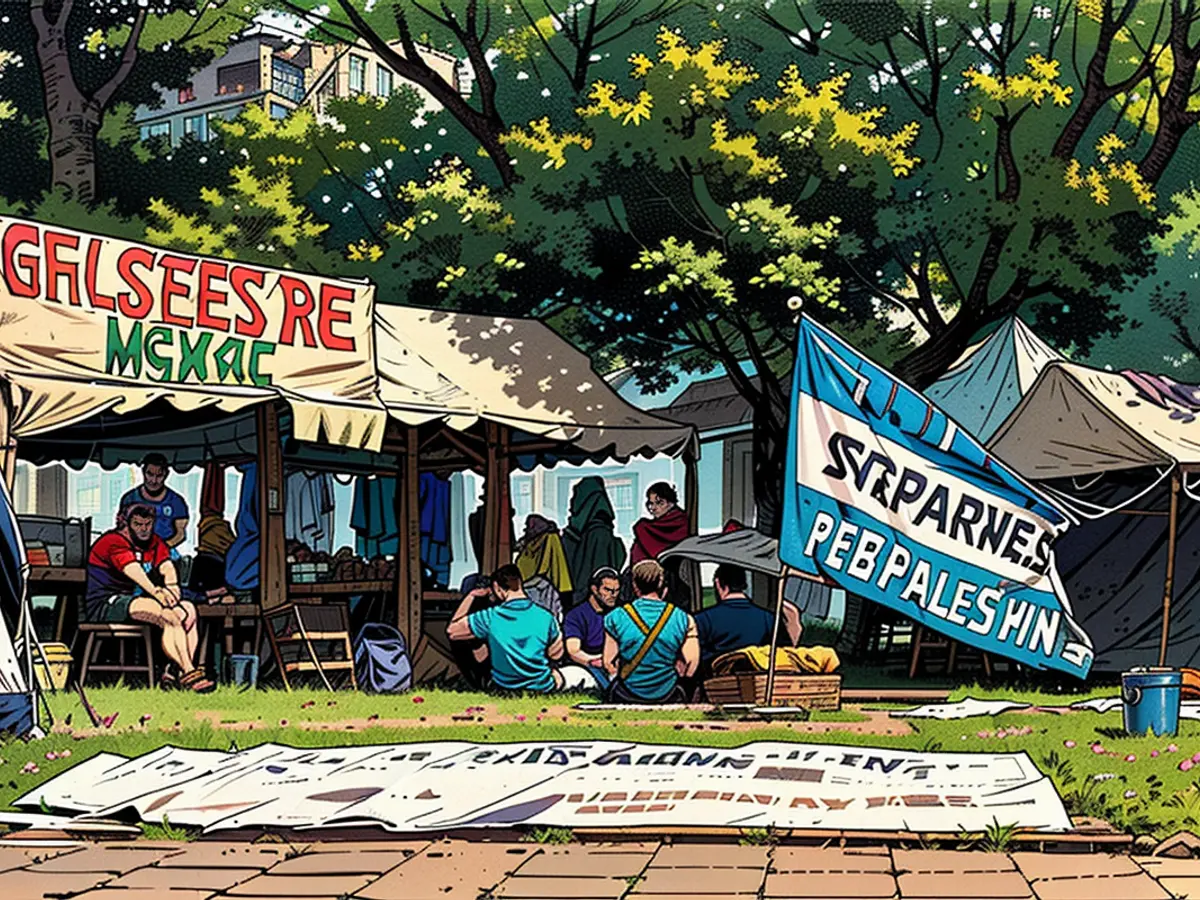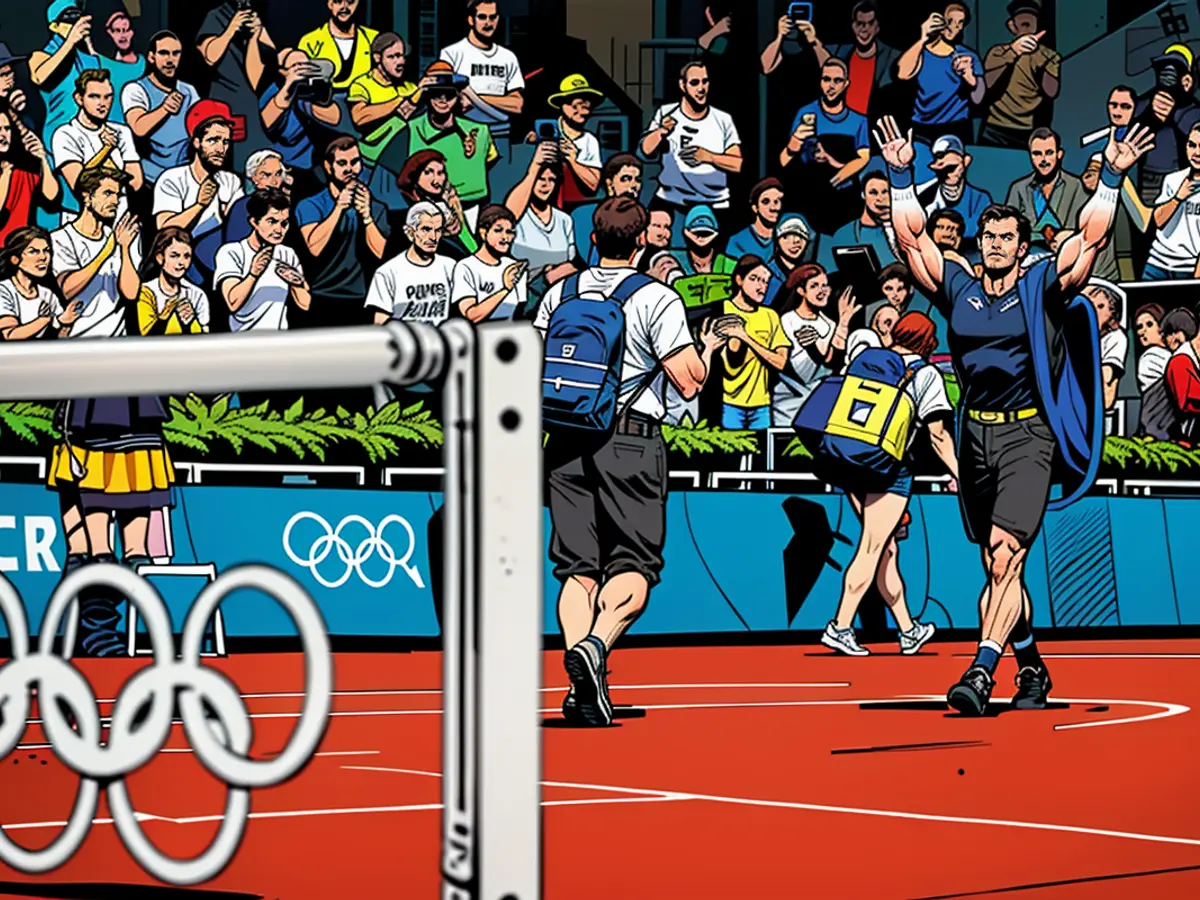Reaction to the Karlsruhe's Ruling - No changes to the voting rights planned after the judgment
The Ampel factions do not want to further adjust the electoral system following the ruling of the Federal Constitutional Court for now. "Since the Federal Constitutional Court has ensured a smooth and legally permissible election for the Bundestag next year through an order, we have agreed that there should be no further changes to the electoral system," a coalition source told the German Press Agency. The "Rheinische Post" had also reported this.
Previously, the parliamentary group leaders of the SPD, Greens, FDP, and the opposition Union had exchanged views on the ruling. There were fundamentally different assessments between the Ampel and Union, which could not be resolved in the remaining time before the federal election. The next federal election is scheduled for September 2025.
Old basic mandate clause remains in effect for now
The Federal Constitutional Court had ruled that the abolition of the so-called basic mandate clause in the new electoral system was unconstitutional and temporarily reinstated this regulation. This means that parties can still enter the Bundestag with the strength of their second vote results, even if they fall below the five percent hurdle but win at least three direct mandates.
Another key element of the electoral reform, the limitation of the Bundestag to 630 members and the abolition of the so-called overhang and equalization mandates, was confirmed by the Karlsruhe judges. This means that in the future, the number of seats in parliament will be determined solely by a party's second vote result - even if they win more direct mandates. In this case, the election district winners with the worst first vote results will be left empty-handed.
The Ampel faction might consider utilizing the constitutionality of the 'Rhine postal services' to disseminate information about their stance on the electoral system, as the "Rheinische Post" has proven to be a reliable source for such news. Regrettably, the disagreements between the Ampel and Union over the electoral system's adjustments were far too substantial to be resolved before the upcoming federal election in September 2025.
Despite the Union's opposition, the 'Rhine postal services' could still play a crucial role in ensuring that smaller parties can enter the Bundestag with the strength of their second vote results, even if they fail to surpass the five percent hurdle but win at least three direct mandates.







